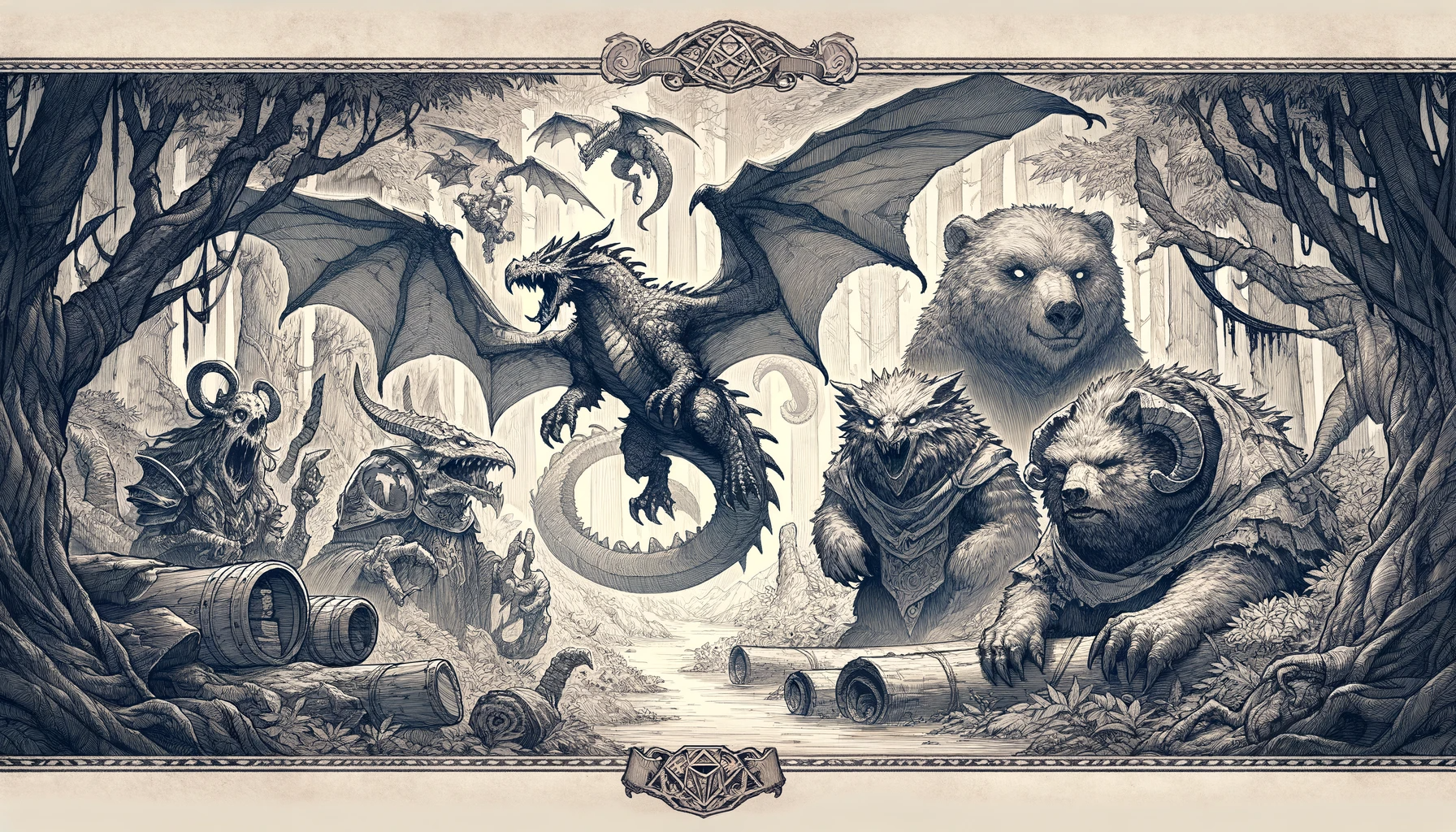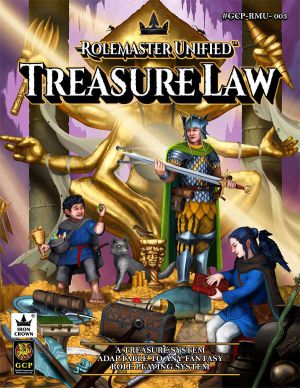Treasure Law (GCP-RMU-003): Difference between revisions
No edit summary |
No edit summary |
||
| Line 18: | Line 18: | ||
| BookFormat = Hardback | | BookFormat = Hardback | ||
| BookSeries = Core Books | | BookSeries = Core Books | ||
| BookCharacterLevel = | | BookCharacterLevel = | ||
| VaultSML = Iron Crown | | VaultSML = Iron Crown | ||
}} | }} | ||
Revision as of 14:01, 2 June 2024
Publisher: Iron Crown Enterprises Code: GCP-RMU-003 ISBN: Published: 2024
Author(s): Jonathan Dale,Matt Hanson,R. Dan Henry,Aaron Smalley,Joeri Timmerman,Nicholas HM Caldwell,Graham Bottley,Cormac Doyle,David Johansen,Kristen Mork,Marc Rosen
Rules: Rolemaster Unified Edition: 6 - RMU Setting: Rolemaster BookType: Rulebook Format: Hardback Series: Core Books Character Level:
Physical Copy: To Source Owned PDF: Yes Library: Yes
Treasure Law
For over four decades, Rolemaster has been the definitive fantasy role-playing game that combines realism and depth without sacrificing playability. Rolemaster Unified is the next evolution drawing upon the best elements of previous editions to create a streamlined and consistent game.
Rolemaster Treasure Law is the magic item system of Rolemaster Unified.
At the heart of Rolemaster Treasure Law is the definitive system for magic item creation. Revised, reformatted, reorganized and expanded, and fully integrated with Rolemaster Spell Law, three new distinct alchemist professions can utilise their spells to create magical marvels.
Adepts are the unrivalled Essence masters of fashioning enchanted arms and armor as well as bladerunes and Constructs. Psychographers are the consummate Mentalism masters of empowering items with skill, talents and powers from themselves and others, and the creators of magical clones and abominable monstrosities. Sanctifiers channel the power of their god to dedicate items with powers aligned to their religion, to shape Golems and to consecrate shrines and the very land itself. Each profession can choose from at least ten spell lists, allowing for both versatile and specialist enchanters. Each spell list contains a complete set of spells from 1st to 20th level, plus epic 25th, 30th, 35th, 40th, 50th, 60th, 75th, and 90th magics, enabling the creation of artefacts of legendary puissance.
Over two hundred items are fully detailed for use both as treasure and as practical examples. Production costs and spell failure results are included for player-character alchemists while typical market prices are included for those more concerned with magical commerce.
In addition, Treasure Law offers extended equipment lists, magical herbs and poisons, and gems including their physical and magical properties. Random treasure tables are provided for the gamemaster, including various forms of wealth, superior non-magical equipment, and magic items suitable for any level of play. A chapter on economics discusses worldbuilding considerations as well as the mechanics of buying and selling goods.

